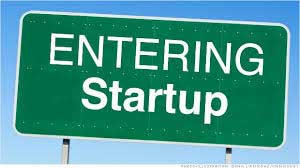
There are two areas that you have to pay close attention to – expenses and income. That’s more than obvious, but it’s the tactics that you use for each that will largely determine whether your business is a success or failure.
Keep a Tight Lid on Your Expenses
A common mistake that many new business owners make is spending a lot of money upfront, often before they even launch the business. With bricks and mortar type businesses that’s par for the course. But since most businesses today are Internet-based, you should be able run your business on an absolute shoestring.
Here are some tactics to help you do just that:
Work out of your home for as long as you can. You should avoid buying or renting any business-related space until you’ve first established a healthy cash flow. Work out of your home for as long as you can, and if you do need extra space rent or sub-let it on a short-term basis at the very lowest price possible. In the meantime, working out of your home will allow you to have all the trappings of an office – electricity, phone lines, and Internet connection – without the added expense that you have if you need to hook them all up in a remote space.
Unless it’s mission-critical buy secondhand. Equipment is another area where you need to be cost conscious. Unless equipment is absolutely essential to the basic operation of your business, you should avoid heavy investment until you have a demonstrated cash flow coming in. Buy secondhand equipment and use it for as long as you can, until your income allows you to trade up.
Don’t hire – subcontract out instead. One of the toughest parts of starting a new business is having to do every job connected with your business. If there’s no income, you can’t possibly hire anyone to do certain jobs for you. Instead, sub-contract work out on an as-needed basis. For example, you can bring in someone with accounting experience to help you close out your monthly books. You can also hire someone for a couple of days to help you with your accounts receivable.
Partner where possible. Sometimes there’s a major function in your business that you simply cannot handle on your own. If that’s the case, look into partnering with somebody who is strong in that area. Since the partner will get a share of the profits – rather than a fixed salary – the arrangement should be much easier on your budget.
When you are starting a new business, you should be very conscious to avoid creating fixed expenses that you will need to pay even if you don’t have any income. That can put you out of business before you even get started.
Building Your Income
There’s no delicate way to put this, but until you have a cash flow, you don’t have a business. This should make creating a cash flow Job 1. There are ways to do this when you’re first starting out and operating on a shoestring.
Get a cash flow going before going full-time. In most businesses, it’s completely unnecessary to quit your job and start running the business on a full-time basis. It will be better if you hold onto your job – that way you have a cash flow for your living expenses – and build up your business as a side venture. If you can create a cash flow of just a few hundred dollars a month in this way, you will not only have an income when you go full-time, but you’ll also have the confidence of knowing that your business concept will be successful. Yes, it will slow the start of your business, but at the same time it will improve your chances of success. Those are the kinds of trade-offs you will want to make.
Concentrate your time on the activities that generate the most income. This needs to be a core principle of anyone who is going into business for themselves. Starting a business, you might have 20 tasks that you have to perform each week. If four of those tasks are the ones that will generate income, or the lion’s share of it, then those are the tasks that you need to be concentrating on most heavily. You’ll need to do this at least until your business reaches a point where it’s generating sufficient income for you to begin paying others to do the tasks that are not bringing cash in the door. Your business will succeed to the degree that you are successful in concentrating on activities that will generate the most income.
Implement low cost/free marketing. Marketing is generally the most important activity in any business, but especially at upstart. Marketing is what draws people’s attention to your business, so that you can convert them into paying customers. You will need to come up with low-cost and therefore very sustainable marketing activities that will make this happen.
Some of the methods that you can try that will be easy on your budget include:
- Networking with people who represent natural clients for your business.
- Using the social media to draw people to your website and business – they’re free to participate in.
- Email blasts to everyone in your email address book – even if they’re not prospective customers, they may forward your email on to others you are.
- Ask everyone you meet who do you know who is looking for (my product or service)? Many business arrangements are started by informal conversations.
- Have a supply of custom-made business cards or business flyers that you can pass out to anyone you meet. You need to have something tangible to help people remember you after you meet with them.
- You should create a website – even a simple one – as soon as you start your business. Everyone is on the web these days, and you need to be as well. A simple (and free) WordPress format can get you started until you have enough income to build a top-quality site.
The whole purpose of marketing is to get people’s attention so that they are looking for you even when you’re not out prospecting. Some of the best customers and clients you will land will be third-party referrals, or people who saw your flyer or website. These are all inexpensive marketing methods that will help you to create a customer base until you can afford to invest serious money in marketing.
Concentrate your efforts on building your cash flow, as well keeping your expenses at the absolute bare-bones minimum level. That combination will help to give you the time that you need to get your business established.



